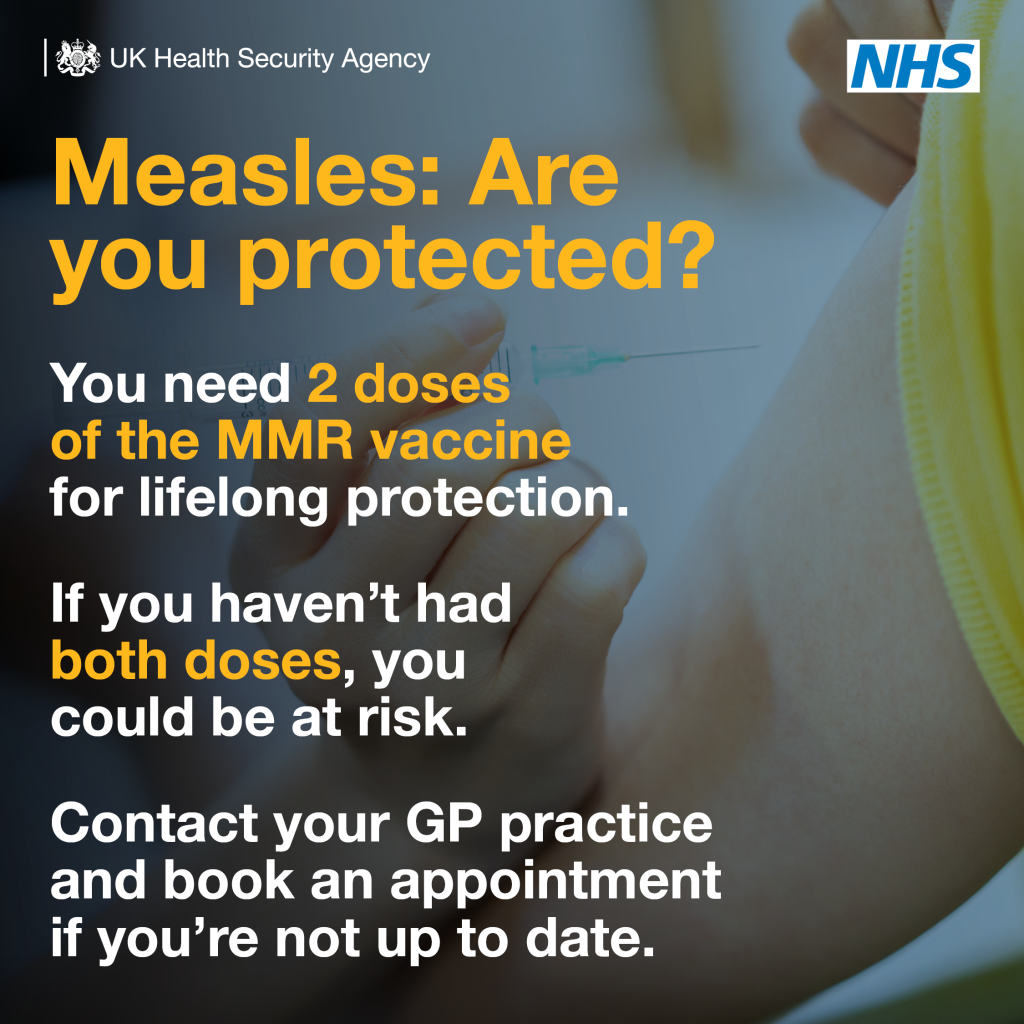
Measles: Warning given over low MMR uptake after cases rise to 200 in West Midlands
Health officials have warned that a large increase in measles cases and hospital admissions in the West Midlands is being driven by low vaccination rates.
Schools have been advised that any child who comes into contact with a case and who has not had at least one dose of the measles, mumps, and rubella vaccine should be excluded for 21 days to protect others.
Provisional figures from the UK Health Security Agency show that as at 15 January the West Midlands had at least 198 laboratory confirmed cases of measles, with a further 104 cases likely. Around 80% of the cases are in Birmingham and 8% are in Coventry, with most occurring in children who were not vaccinated against measles, mumps and rubella, the UKHSA said.
Symptoms of measles appear 7-10 days after contact with the virus and include:
- cold-like symptoms such as runny or blocked nose, sneezing and cough
- red, sore, watery eyes
- high temperature (fever), which may reach around 40OC / 104OF
- a non-itchy, red-brown rash usually appears 3-5 days later (sometimes starts around the ears before spreading to rest of the body), spots may be raised and join to form blotchy patches – which may be harder to see on darker skin tones
- small white spots may appear inside cheeks and the back of lips (for a few days)
Families are being urged to check their vaccinations are up to date
Paul Fisher, UKHSA West Midlands Consultant in Health Protection said:
“If you think you could have measles, it’s really important to stay away from areas where you could come into contact with lots of other people – especially vulnerable patients in hospitals, care homes or other healthcare settings.
“If you have the symptoms of measles, it is essential that you don’t just turn up at your GP practice, walk in centre or other healthcare setting. Instead, you should contact your GP or NHS111 for advice. If you do need to visit your GP practice, walk-in centre or other healthcare setting, please phone ahead so arrangements can be made to prevent other people being infected.”
The MMR vaccine is part of the routine NHS schedule of childhood vaccines administered:
- 1st dose just after the child’s first birthday
- 2nd dose at 3 years 4 months and certainly before children start school full time
Paul Fisher added:
“The MMR vaccine is free and a safe and effective way of protecting against measles, as well as mumps and rubella. If children and young adults have missed these vaccinations in the past, it’s important to take up the vaccine now from GPs, particularly in light of the recent cases. Check your child’s Red Book to see if they’ve received MMR vaccinations as scheduled or check with your GP surgery if you’re unsure. It’s never too late to get vaccinated against measles.”
More information about measles is available on the NHS website here: https://www.nhs.uk/conditions/measles/
Further information about the MMR vaccine can be found on the NHS website here: https://www.nhs.uk/conditions/vaccinations/mmr-vaccine/
